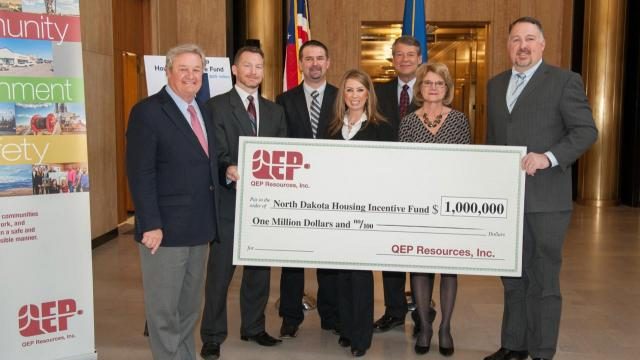The North Dakota Housing Incentive Fund Shell Game

During the 2011 legislative session Governor Jack Dalrymple pushed for, and won, the creation of what’s called the Housing Incentive Fund.
Essentially private individuals and companies can donate money to the fund which is then used to invest in housing projects in the state which meet certain guidelines. Contributors to the fund can even direct their contributions to specific projects and areas.
But here’s the thing: Contributors also get a dollar-for-dollar tax credit in exchange for their donations. A tax credit they can roll over for as long as ten years. And as I write at Watchdog today, the contributors haven’t been shy about claiming those credits.
According to data obtained by Watchdog from the North Dakota Tax Commissioner’s office, from 2011 through 2014 the fund received $35 million in donations, but contributors cashed in on more than $31 million worth of tax credits. More credits are likely to be claimed when tax filings for those years are completed.
“For individuals, the 2014 tax year numbers are incomplete due to extensions until October 15, 2015,” Tax Commissioner Ryan Rauschenberger told Watchdog in an email. “For corporations, the 2013 numbers may be incomplete and the 2014 number are incomplete due to fiscal year filers that, with an extension, could be filed up to September 15, 2015, and September 15, 2016, respectively.”
Basically, just about every dollar that has been contributed to the Housing Incentive Fund has been given back to them by the taxpayers in the form of tax credits (again, that $31 million figure will likely go higher as tax filings from previous years are finalized).
So who is really paying for all this? Is it the companies who are applauded in ceremonies and press releases orchestrated by Governor Jack Dalrymple’s office? Or is it the taxpayers?
This seems less a public-private endeavor than a shell game that has the taxpayers footing the bill for affordable housing projects while private contributors take the credit.




